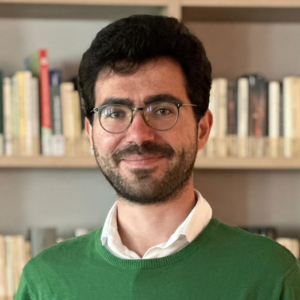I have been a PhD student in Contemporary History at the University of Turin since November 2024. I hold a Bachelor’s degree in History and a Master’s degree in Geography and Territorial Sciences. My research focuses on the intersections of political history and territorial inequalities, with a particular emphasis on the deindustrialization of regions and its effects on political structures. I conducted research at the École Normale Supérieure in Paris and the University of Nottingham’s School of Geography, where I developed my expertise in oral history and archival methodologies. In my work, I aim to combine oral and archival sources—both traditional and digital—offering a multidimensional approach to historical inquiry. In addition to my academic pursuits, I am politically active in my local administration, where I strive to understand and address the challenges faced by marginalized territories in the Italian Alps.
Project statement:
Shrinking Politics: Transformations in the Relationship Between Politics, Parties, and Territories (1974–2006) in Italy and France
This research investigates the transformations in the relationship between politics, parties, and territories in Italy and France during the transition from mass political parties to new forms of political representation between 1974 and 2006. By examining Italy’s Piedmont region—including its southeastern areas, the city of Turin (a former onecompany town now transitioning from Fordism), and the province of Biella, which has been impacted by the crisis in the textile industry—and France’s Nord-Pas-de-Calais region, the project analyzes the socio-political impacts of deindustrialization and the decline of traditional political parties. The study employs a comparative historical approach, integrating archival research, oral history, and socio-economic data. In Italy, the focus is on both the dissolution of Christian Democratic dominance in rural areas that later became strongholds of the Northern League and the erosion of left-wing parties in former working-class strongholds within parts of the industrial triangle. In France, the transition from strong communist influence in mining regions to the prominence of the far-right National Front is explored. Key themes include the “shrinking” of political engagement, parties and institutions in regions affected by economic decline, the emerge of local institutions (e.g., banking foundations in Italy) and new local actors. This comparative framework offers insights into the socio-political resilience or collapse of traditional parties amidst neoliberal economic shifts.





